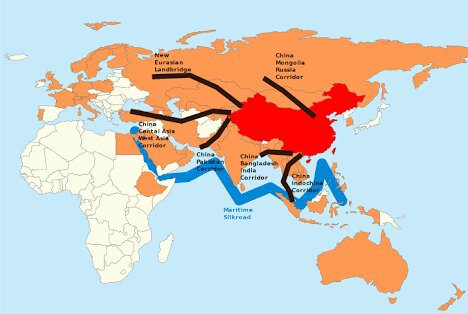
So, 2017 is over, as is another year of reading. I managed 23 books this year (including poetry collections and plays), and credit 2017 with the discovery of some of my new favourite authors, for example Virginia Woolf and Ian McEwan (both of whom I was aware of, but had not fully appreciated until now). Sadly, as always, time ran away with me and I didn’t manage a fraction of what I wanted to read, so roll on 2018, when I can make more of a dent in my ever-growing list! I have, with difficulty, narrowed down my six favourite reads from this year, so enjoy.
[One or two minor spoilers below!]
Brand New Ancients by Kate Tempest
A ground-breaking, book-length poem, designed to be spoken aloud, Brand New Ancients was one of my favourite discoveries of this year. The rhyming pattern and syntax, difficult to convey in this blogpost without copying out large sections of the poem, is masterly; Tempest hops and jumps between rhymes and rhythm in a way that is beautiful to read aloud to yourself and I am sure even more impressive if you heard her speak it (which I have yet to be able to do, if anyone knows a full version somewhere to listen to, let me know).
Following the lives of several working class people as they grow up and experience the depressing nature of life, Tempest draws links back to the Ancient Greek gods and cleverly makes mythical references, for example interchanging the name Gloria with Glory every so often.
“The stories are you
and your fear and your hope is as old
as the language of smoke,
the language of blood,
the language of languishing love”.
Reading the seamless lines was pure enjoyment, despite the difficult subject matter and I highly recommend it. I hope to next read/listen to Europe is Lost, which famously (or famously in the poetry world) predicted Brexit, supposedly.
The Waves by Virginia Woolf
The start of my Woolf addiction; I had read a couple of her other novels prior to this and never quite understood her style. However, prompted by the necessity of an extended research project I was undertaking, I read this one, as well as a large amount of material on Woolf’s life, which in combination created a staunch Woolf fan out of me. One of Woolf’s friends, G. Lowes Dickinson, wrote in a letter to her that “the book is a poem”, and I thought that this summed it up perfectly; the flow of the prose becomes almost poetry in its fluid nature, and the revolutionary style of alternating between six streams of consciousness sets it apart as a ground-breaking work, and also a very enjoyable read. For anyone that is put off by the rather denser To the Lighthouse or Mrs Dalloway, I think The Waves is the perfect inroad to Woolf.
The six narrators (Bernard, Louis, Neville, Rhoda, Jinny and Susan) are followed from childhood to old age and death, covering all their life experiences, emotions, traumas and heartbreak. It is a novel that truly demonstrates the scope of human existence and is a touching read, especially the sections concerning childhood. The descriptions of love also contain my favourite quotation from the book, spoken by Neville:
“I know what loves are trembling into fire; how jealousy shoots its green flashes hither and thither; how intricately love crosses love; love makes knots; love brutally tears them apart. I have been knotted; I have been torn apart.”
The Secret History by Donna Tartt
A modern classic that has shocked and awed readers since publication, it took me long enough to get round to reading The Secret History and it did not disappoint. Set in a US liberal arts college in the 1960s (I think), this sweeping tale of harsh life lessons and the dangers of excess is hard to forget.
The revelation of what will happen to Bunny (one of the central characters, a friend of the narrator Richard) is shown in almost the first line of the novel, which leads you in anticipation to the event itself, thereby drawing attention away from later action in the book. The desolation we are left with was what was most shocking for me about the novel; the epic tales of Greek tragedy and myth scattered throughout it contrasted with the cruel final couple of pages create an effect that has stuck in my mind since reading it and I hope to find time in 2018 to read more of Tartt’s work. I meanwhile, am also just waiting for the film adaptation, which I’m sure would be breath-taking.
The Bell Jar by Sylvia Plath
Plath’s novel, often taken as a thinly-disguised autobiography, was something I decided to read after enjoying her poetry collection Ariel. The Bell Jar does not disappoint, and is heart-breaking and thought-provoking in equal measure. It starts as a fairly upbeat tale of a young woman, Esther, on a magazine internship in New York, but quickly develops into a frightening tale of her descent into a mental breakdown. What struck me most was the debate over how much control a mentally ill person should have in deciding their future; Esther is denied death and then her freedom, and none of the employees in the starkly white and clinical institute she ends up housed in seem to care about what she actually wants and needs.
The section in which Esther first wakes up in the hospital after realising she has awoken from what she thought would be eternal oblivion is in my opinion the most harrowing of the novel, as the reader sees that Esther has failed even at this most final of acts and must continue in a world she has lost patience with. However, what I found equally alarming was the way in which Plath cleverly uses the first-person narration to make the reader believe what Esther is saying. I read the book almost entirely in one sitting and came away rather disturbed to find I was thinking as Esther would. This is surely testament to Plath’s writing ability, and emphasises the tragedy of the fact that she succeeded where Esther didn’t and robbed the world of reading any more of her extraordinary writing.
On Chesil Beach by Ian McEwan
This novel has merited a post of its own, such was my love for it. Read that here, because I think it covers most of my feelings about it, but a more truly beautiful and heart-breaking book I have never encountered before, and I cannot recommend it enough.
A Room of One’s Own by Virginia Woolf
Big surprise, a second Virginia Woolf book, and this one I enjoyed even more. A manifesto, almost, on the injustices of women’s representation, both as characters and authors, in fiction, it is amusing and thought-provoking in equal measure. Though I have read much about Woolf’s life, read her letters and diaries and researched her biography in depth, I never felt I really got her as much as when I read this. A Room of One’s Own follows Woolf as she wonders what to talk about in a university lecture on ‘Women and Fiction’, which leads her to conclude that female authors have been systematically oppressed by society and yet still “all those good novels, Vilette, Emma, Wuthering Heights, Middlemarch, were written without more experience of life than could enter the house of a respectable clergyman”.
Woolf is also funny; it sounds strange to say, given her depressing biography, but it is after all easy to forget that she was enormously popular and admired in literary circles by men and women alike, and the reason for this seems to shine through particularly in AROOO. There is the humorous moment when Woolf is ‘reading’ a fictional work by a fictional female author Mary Carmichael, in which she reads “Chloe likes Olivia” and realises that she cannot “remember any case in the course of my reading where two women are represented as friends”. Some have interpreted this to be a subtle reference to Woolf’s lesbianism, but it came across to me as just a wry observation that, funnily enough, women can enjoy each other’s company.
My favourite quotation from the book comes in the assertion that female authors “wrote as women write, not as men write”; that women are talented and intelligent in their own right, not just in relation to men is a message of empowerment that stuck with me, and I think is as applicable in modern society as it was in Woolf’s lifetime.
Advertisements Share this:




